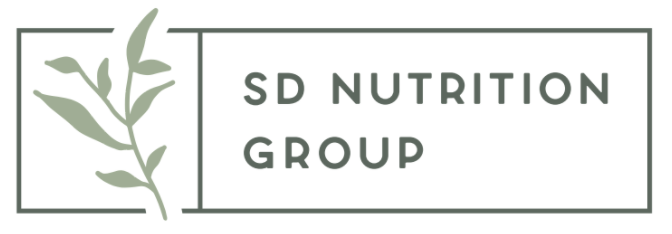The Nuances of Intuitive Eating
Recently, I’ve been seeing a lot more posts on social media under the hashtag #intuitiveeating, which is great! What’s not so great about it is that many of the posts shouldn’t really be using the hashtag at all and completely miss the point of intuitive eating (IE).
I’ve seen intuitive eating mainly be condensed down to one of two concepts: eat only when hungry and stop when full, or eat whatever you want all the time. Neither of these are what intuitive eating is really about.
Let’s talk about the first one- hunger and fullness. Yes, IE encourages us to listen and respond appropriately to our hunger and fullness cues. Two of the ten intuitive eating principles are Honor Your Hunger and Respect Your Fullness. Most of the time, we should aim to listen and respond to our hunger and aim to stop eating when we’re comfortably full and satisfied. But we can’t be expected to get it right 100% of the time- sometimes we don’t pack enough for lunch or underestimate our hunger and we end up with a rumbling stomach even after eating. Sometimes we’re really enjoying those french fries we’ve been craving all week and eat past fullness. Or your grandma brings over her famous pie and even though you aren’t hungry, you eat some because you know how much it means to her and that pie is the bomb. All of these scenarios are ok. Neither of them indicate that we’re doing IE “wrong” because there truly is no wrong way to intuitively eat if you’re listening to your body. However, “the hunger-fullness diet” is another thing entirely. That just turns it into another diet rule, implying that if you eat when you’re not hungry it’s wrong. Or if you eat past fullness it’s wrong. That puts so much pressure on us to get it just right and leaves us feeling guilty when we get it wrong. As long as you’re making a solid effort to honor your hunger and respect your fullness most of the time, you’re good!
For the second one- NO, IE is not just eating whatever you want allll the time! That’s the scared dieter’s voice hiding in so many people that says “if I give up my food rules/my diet I’m just going to eat junk food all the time!”. Not so, my friends. In fact, the more closely you hold onto your diet and food rules, the more likely you’ll be to feel out of control around and potentially binge on your “bad foods”. The intuitive eater doesn’t have any bad foods because they know that all foods can fit into a healthy diet. This unconditional permission to eat actually decreases urges to go overboard on fun foods (otherwise known as “junk foods” but I reject that name) because if you know you can have them anytime, there’s no need to eat it all right that minute. This also allows for something called “habituation” to happen where you get so used to having the food regularly, it looses that special appeal it has when it’s off-limits.
In addition, IE doesn’t just throw nutrition by the wayside. But there’s a reason the principle Honor Your Health with Gentle Nutrition comes last. If we focus on nutrition too early on in learning to become an intuitive eater, it can easily become another diet rule (for example, getting into the healthy vs. unhealthy mindset with all foods fitting into one of those 2 categories). Intuitive eating is the intersection of cueing into our hunger/fullness, honoring our cravings, making the most out of what/how much food is available to us in that moment, and using nutrition to make informed decisions for our health.
In a perfect world, all of these factors would perfectly match up with each eating experience. But life isn’t perfect and sometimes one or more of those factors isn’t met. This is where diet culture and IE really differ. Where diet culture is black and white and concrete in its ways (should/shouldn’t, good/bad, healthy/unhealthy), IE is flexible and adaptable. In order to become true intuitive eaters, we have to learn to live in the space between.
Instead of absolutes, start using phrases like “it’s ok” and “I can”. For example:
“It’s ok if I have a donut for breakfast, but I might be hungry soon after"
“I can choose to have vegetables at lunch, but these options aren’t very appealing to me. It’s ok if I just have some later instead”
Ok, that’s all for today. Do you have any questions about the nuances of intuitive eating? Tell me in the comments! I’d love to hear from you.

